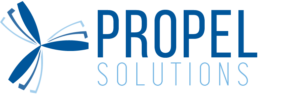Although often used interchangeably, budgeting and forecasting are distinctly different.
Budgeting is the activity of laying out the expected revenue and expenses that a business or department is going to strive for in the next year. Budgets are usually created for one or more years. The components of a budget include:
- Anticipated revenues and expenses
- Cash Flow
- Debt payments and reductions
Why Is Budgeting Important?
The significance of budgeting is that it allows a manager to compare their actuals against their goals and provides a benchmark throughout the year to determine if the company or department are on track. A budget should be compared against actuals on a regular basis, such as quarterly or monthly and is an essential Key Performance Indicator (KPI) for any company or department.
Forecasting is the activity of projecting the future financial results based on historical results. Forecasts are updated quite regularly as information is received and as strategy pivots throughout the year. The components of a forecast include:
- Historical data to predict future results
- Regularly updated to re-forecast future results (often done at each quarter which has enough data to make educated forecasting decisions)
- Used to make immediate changes if forecasting highlights challenges or opportunities in the near or long term
Why is Forecasting important?
Forecasting provides visibility on the realistic expectations on revenue and expenses and is a dynamics approach to understanding potential future results. Because forecasts will be re-evaluated each quarter, they provide the critical information required to make decisions about the direction and strategy of the company or department. If forecasting targets are not being met, what changes need to occur to change the course? If targets are being exceeded, how can a manager capitalize on what’s happening in the market?
This Mini Series
This mini series will touch on 4 topics of effective budgeting including:
- Long term versus short term budgeting
- What to Consider When Projecting Growth
- Breaking Down Expenses to Gain More Control
- Creating a Cash Flow Budget
Questions? Contact Us
If you want to learn how to instill a culture of Continuous Improvement within your organization contact us at Propel Solutions today. We specialize in creating high performing teams and have a proven track record of powerful results.
Propel Solutions
- 📍 789 W. Pender Street, Vancouver, BC, Canada
- 📞 604-346-5185








